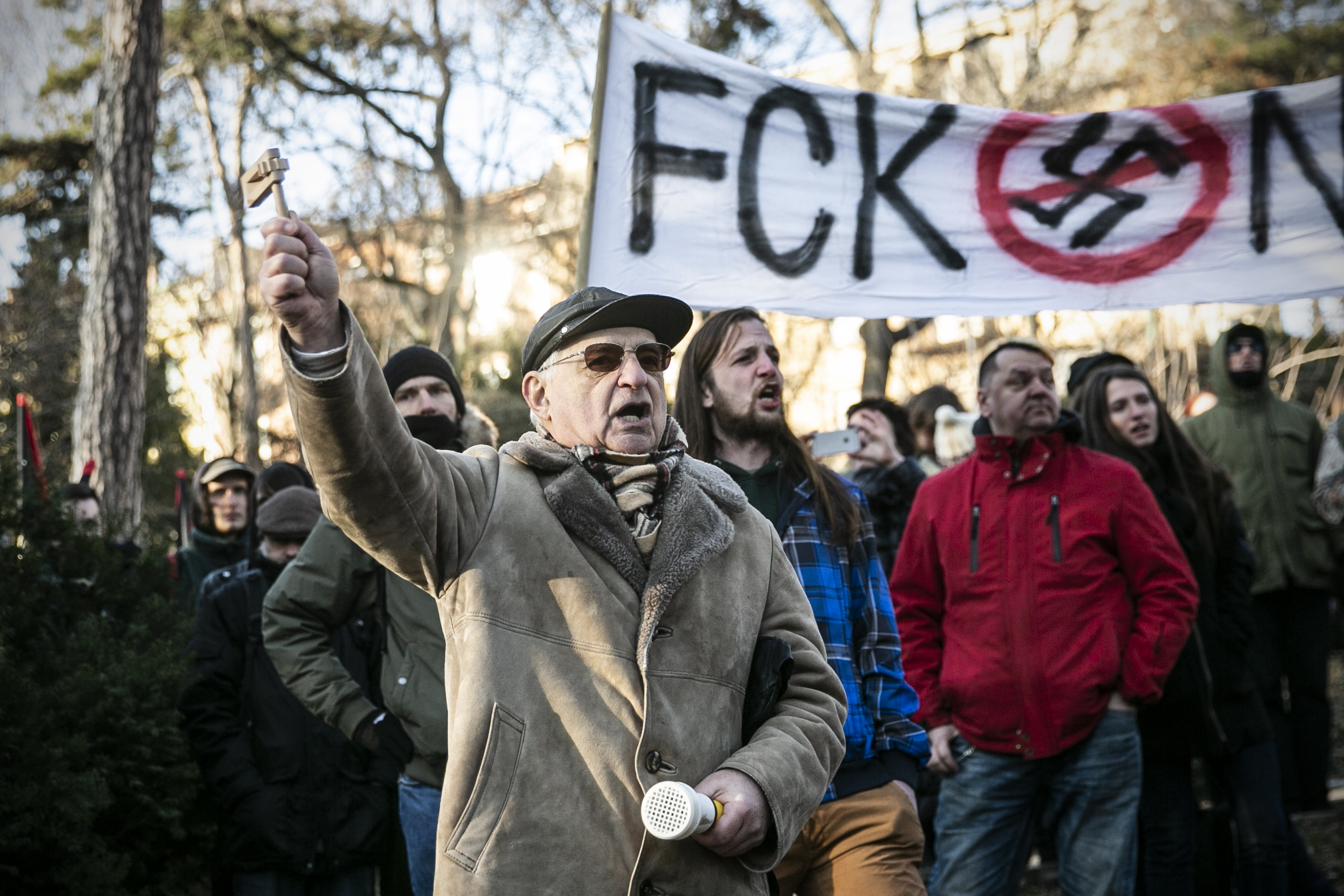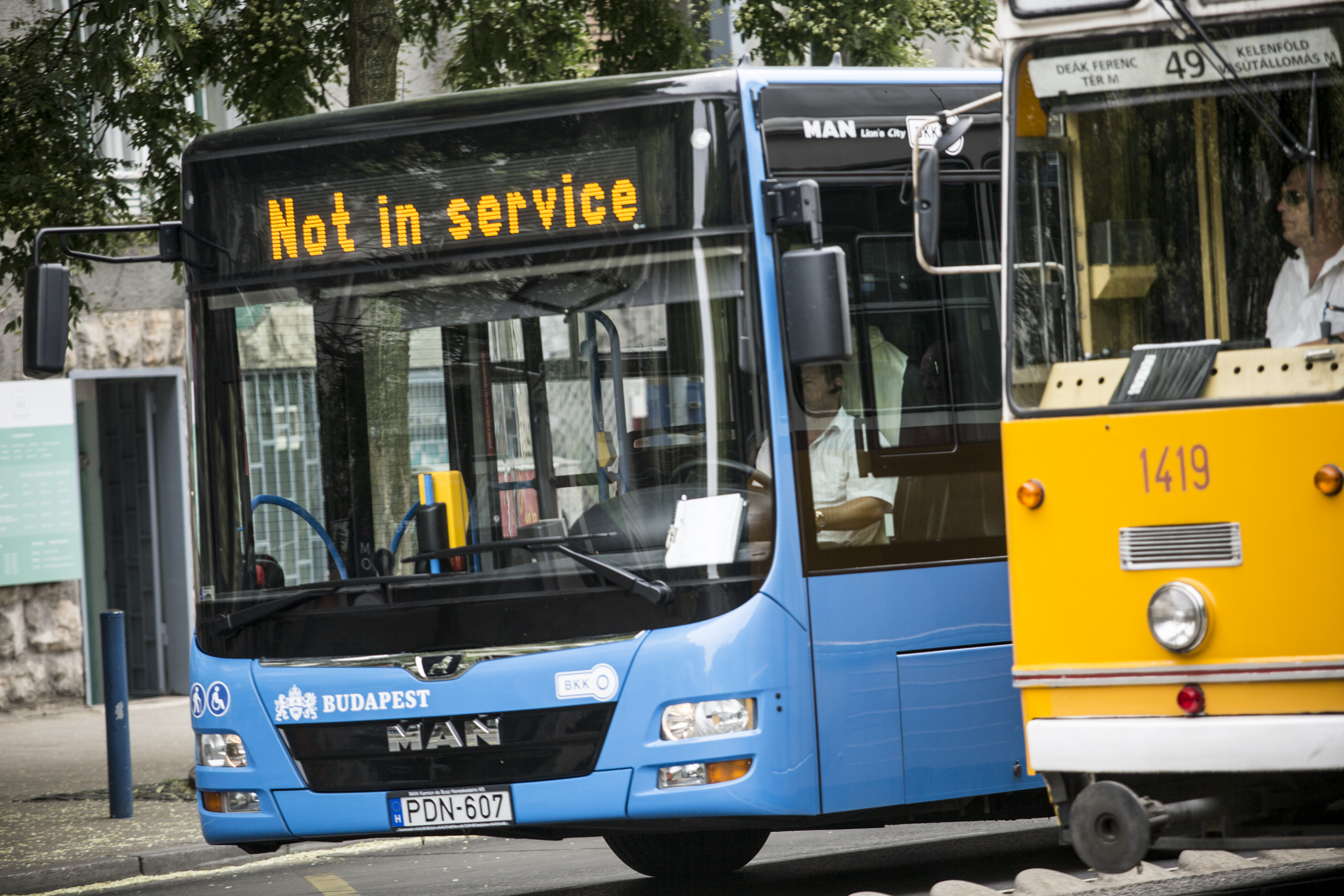Orbán announces National Consultation on restitution for prisoners, segregated Roma
- Stay updated on the latest news from Hungary by signing up for the free InsightHungary newsletter:
At a closed-door Fidesz caucus meeting in Balatonfüred on Wednesday, Prime Minister Viktor Orbán announced that the government would initiate a new round of national consultations.
Orbán said the new consultation would address several topics including the "prison business", the proposed tightening of conditions for parole, restitution payments for Roma victims of school segregation in Gyöngyöspata, and the suspicion of judicial corruption surrounding the case of construction company Szeviép.
According to pro-government Magyar Nemzet, Orbán said the government had used such consultations to ask Hungarians' opinions on many important questions in the last ten years, and "their collective decisions have demonstrated the power of national consensus".
National consultations are publicly-funded, non-scientific questionnaires sent to every adult in Hungary, ostensibly to measure public opinion. The government has previously held consultations on, among other topics, "immigration and terrorism", "the Soros Plan", as well as one titled "Let's Stop Brussels!" The consultations have been widely criticized as using arbitrary, unreliable methodology and serving as simple propaganda.
Since January, the government has insisted it would not make court-ordered payments to former prisoners that were victims of inhumane conditions, nor to Roma children that experienced segregation in a public school in Gyöngyöspata between 2004-2017. Earlier comments from Orbán suggest the new consultation will aim to incite resentment against prisoners and Roma people by portraying them as undeserving drains on public resources.
Speaking at a weekly press conference on Thursday, Minister of the Prime Minister's Office Gergely Gulyás announced that the consultation would feature nine questions and would be mailed out in mid-March. Respondents will be able to return the questionnaires until late April or early May, he said.
The content of the questions will be released next week.
Neo-Nazi rally and counter protest held in Budapest
Neo-Nazis from around Europe gathered in Budapest on Saturday to commemorate what they call the "Day of Honour", a failed attempt by German and Hungarian soldiers to break across Soviet lines on February 11, 1945 during the Red Army's siege of Budapest.
Participants from Germany, France, Russia, and Hungary gathered at the Városmajor park in Budapest's 12th District to hold a ceremony honoring the Nazi soldiers and Hungarian Arrow Cross collaborators that lost their lives in the breakout attempt. Police had earlier banned the Day of Honour event, but a court overturned the order and allowed it to be held at Városmajor.
Counter demonstrations were held in and around the park in opposition to the annual event. Some 500 Hungarian and foreign antifascists and other demonstrators gathered in the park to confront the Neo-Nazis, but were held at least 200 meters away by police cordons. Present at the protest were members of antifascist groups, leaders and protesters from the Roma community, and around 80 drummers from the international anti-capitalist drumming group Rhythms of Resistance.
Following the commemoration, the far-right supporters left the park under police protection, but at least two minor violent altercations occurred between the neo-Nazis and antifascists.
A large group, partially composed of Day of Honour attendees, embarked on a 60km walking tour along the route used by Nazi and Arrow Cross soldiers as they attempted to break out of Budapest in 1945.
Later that evening, a report on pro-government Hír TV bore the headline "Antifascist protesters disturbed commemoration of outbreak day". Budapest Mayor Gergely Karácsony later announced on Facebook that neither he nor any member of his cabinet would give statements to Hír TV until it apologized for the report.
"Neither I nor the deputy mayors nor our colleagues in the Mayor's Office will give statements to Hír TV until it apologizes for its report that whitewashes neo-Nazis and questions the actions of antifascists," Karácsony wrote.
V4 mayors lobby for direct EU funds for cities in Brussels
Budapest mayor Gergely Karácsony was in Brussels Wednesday lobbying the European Union to make funds for climate protection directly available to cities across Europe rather than relying on national governments to allocate them.
"We've got to show the world a different face of the V4 region, and that the Visegrád region is not the same as the the governments that represent these countries," Karácsony said at a Brussels press conference.
Karácsony joined the V4 mayors of Prague and Warsaw (Bratislava's mayor was ill) in presenting a letter signed by the leaders of 15 European cities supporting the plan for direct funding. In the letter addressed to the European Commission, the V4 mayors wrote they want to advance the EU's "Green Deal" by bypassing their governments, which Karácsony described as "Eurosceptic Visegrád countries" where "the rule of law and use of EU funds are in question".
The mayors of Budapest, Bratislava, Prague and Warsaw unveiled their Alliance of Free Cities at the end of last year to distinguish their cities from the populist governments running the V4 countries. In addition to these cities, the letter to the EC was signed by the mayors of Berlin, Vienna, The Hague, Athens, Riga, Vilnius, Tallinn, Frankfurt, Kosice, Milan and Strasbourg.
Government to establish youth camps to instill "national identity"
The government has authored a plan for establishing youth camps for Hungarian teenagers aged 16-18 with the aim of „deepening the healthy, Christian, national values and vision” of Hungarian young people.
Magyar Hang reports that the program, which would provide free camp experiences to 10,000 students over a three year period at a total cost of Ft 4.5 billion (€13.3 million), would be entrusted to the Magyarságkutató Intézet (MKI), a government-directed research institute focusing on the language, history and origins of the Hungarian people.
According to a document obtained by Magyar Hang, the program aims to:
- strengthen the national identity, cultural commitment and healthy national vision of young people
- strengthen national identity and patriotism through programs with national themes (Hungarian achievements, history, preservation of traditions, culture, presentation of identity), and deepening of Christian, national values
- address the soul of the youth and develop the identity and curiosity they gain in the camp.
Director of the Petőfi Literature Museum Szilárd Demeter will also reportedly be involved in the camp program. Demeter has described himself as a „fanatic Orbánist” and is a key figure in Fidesz efforts to acquire greater control over the cultural sphere.
Responding to a question from ATV at Thursday's weekly government press conference, Minister of the Prime Minister's Office Gergely Gulyás called the report in Magyar Hang „fake news”.
Unions turn down BKV wage hike offer, strike could follow
Negotiations ended quickly Wednesday morning after unions representing workers of the Budapest Transport Corporation (BKV) rejected an offer by the company to implement an 8% wage increase. The unions stand by their demands for a 15% general wage hike at the public transit company, which is owned by the city of Budapest.
Upon rejecting the offer, the unions submitted an official collective labor dispute which acts as a warning shot before a potential strike that could follow. According to labor laws, BKV workers may begin work stoppages a minimum of seven days following the submission of the collective labor dispute. The law also allows for unions to call for a one-time, two-hour warning strike within the next seven days.
Világgazdaság writes that wage negotiations last led to work stoppages at BKV in 2010 when a number of bus and trolley drivers went on strike. This dispute, however, could potentially lead to a total shutdown of public transit services in Budapest as nearly every one of BKV's labor organizations have signed on to the collective labor dispute.



